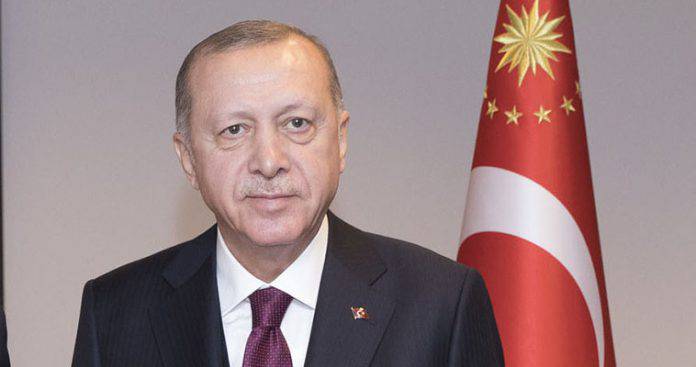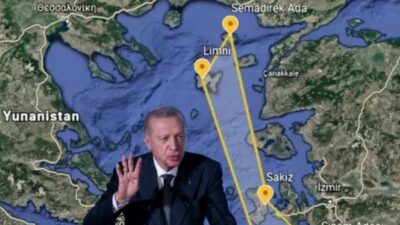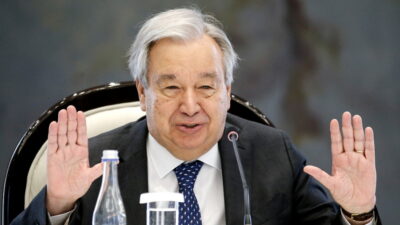Alexandros Tarkas: The upcoming exploratory contacts will be express – negotiations
25/09/2020
A deadline of a few weeks for the progress of the exploratory contacts has been agreed, indirectly and informally, between all parties involved (EU, Germany, Greece, and Turkey) in line with Prime Minister Kyriakos Mitsotakis’ reference to an informal “written understanding” of the secret consultations, in July in Berlin.
Chancellor Angela Merkel, who is personally leading the mediation efforts after the summer failure of the “expandable” Foreign Minister Haiko Maas, has told the Greek side that the process of exploratory contacts, which will be launched soon, should last a few weeks. It has not been clarified whether this is a specific and inviolable condition set by Turkish President Recep Tayyip Erdogan, or an assessment of Berlin after the weighting of Ankara’s demands on the one hand and Athens’ compromise margins on the other.
However, in any case, the tripartite consultation and the process of exploratory contacts are already hobbled from the very beginning, in three directions:
First, the limit of a few weeks to assess the outcome of the contacts is suffocating for the Greek government, which will receive a barrage of Turkish requests for very serious issues that have been pending for decades. In fact, at the same time with the urgings and pressures of allies and partners, the dialogue should continue at all costs, in order to prevent explosive and unpredictable developments in the Southeastern Mediterranean, in the southern wing of NATO and in the area of migratory flows.
The process is understood differently by the two sides
Secondly, as it appeared on July 13 – despite the then written record of what was discussed – Athens and Ankara perceive the process differently. Negotiations through Berlin do not clarify either the agenda of the talks or the so-called “red lines” of each side. As a result, the Foreign Ministry (probably not the PM’s office) is taking for granted that there will be a suspension of all forms of Turkish activity during the talks.
Erdogan’s staff, on the other hand, believes (again, as in July) that there is no reason to relinquish the exercise of “sovereign rights” as the process continues. At that time, after all, there was an official diplomatic transmission of the Turkish point of view, which violates all international customary practices of such talks, without any reaction from Athens.
Things would have progressed, as had been agreed in Berlin, if it had not been decided for Oruc Reis to leave port in response to the Athens-Cairo agreement on the EEZ. It is unknown what will happen now in the event of Turkish moves in the Aegean or the Mediterranean, as Angela Merkel’s mediation practice is reminiscent of the late Richard Holbrooke. The US official had admitted that in September 1995 he was telling Andreas Papandreou and Kiro Gligorov “what each one wanted to hear”, in view of the Athens-Skopje Interim Agreement.
Third, the deadline of a few weeks, which is estimated to be no more than a month and a half, more or less coincides with the US presidential election on November 3. In the opinion of many Greek diplomats, this is a critical milestone, because – regardless of the re-election of Donald Trump or the victory of Joe Biden – the Turkish side estimates that it will be able to move almost uncontrollably after the clarification of the balances in Washington.
American intervention
According to reliable sources, it should be taken into account that not only the White House, but also the State Department, where Erdogan’s practices are criticized, are seeking common Greek-Turkish cooperation ground with almost acrobatic formalities. On the one hand, there is deep concern about Turkish exploration and drilling. On the other hand, Greece and the EU are being asked to seek “ideas for integration” of Ankara in its efforts to find energy deposits.
Emphasis is also placed on maintaining open channels for Greek-Turkish communication at the diplomatic level (this role has been taken over by the diplomatic advisers of the two leaders Eleni Sourani and Ibrahim Kalin) and on defense (“technical agreement” on de-escalation through NATO and communications).
According to the same sources, if Donald Trump is re-elected, he may take some mediation initiative, but there should not be high expectations regarding his effectiveness vis-a-vis his Turkish counterpart. In the same context, the German Presidency of the EU can (regardless of the progress of the exploratory talks) move actively, without ruling out the convening of a second European Council with the exclusive subject of relations with Turkey.





